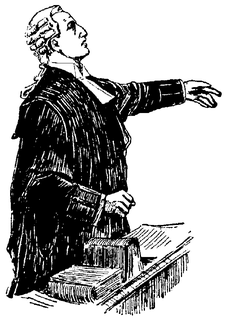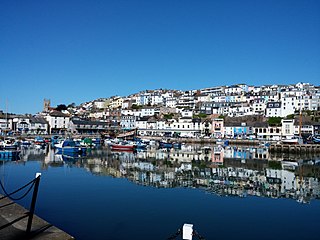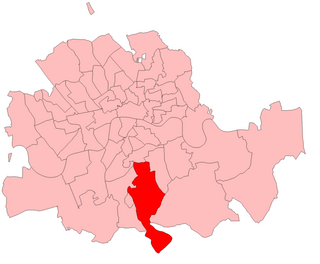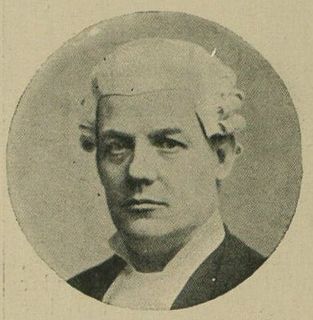The Ashburton by-election, 1904 was a parliamentary by-election held in England on 7 January 1904 to elect a new Member of Parliament (MP) for the British House of Commons constituency of Ashburton in Devon. It was triggerred by the death of the sitting Liberal Party MP Charles Seale-Hayne.
By-elections, also spelled bye-elections, are used to fill elected offices that have become vacant between general elections.

England is a country that is part of the United Kingdom. It shares land borders with Wales to the west and Scotland to the north-northwest. The Irish Sea lies west of England and the Celtic Sea lies to the southwest. England is separated from continental Europe by the North Sea to the east and the English Channel to the south. The country covers five-eighths of the island of Great Britain, which lies in the North Atlantic, and includes over 100 smaller islands, such as the Isles of Scilly and the Isle of Wight.

The House of Commons is the lower house of the Parliament of the United Kingdom. Like the upper house, the House of Lords, it meets in the Palace of Westminster. Officially, the full name of the house is the Honourable the Commons of the United Kingdom of Great Britain and Northern Ireland in Parliament assembled. Owing to shortage of space, its office accommodation extends into Portcullis House.
Contents
- Vacancy
- Candidates
- Liberals
- Conservatives
- Issues
- Trade
- Education
- The Armed Forces
- Result
- The vote
- See also
- References
The election was contested by the Conservative and Liberal parties and won by the Liberal candidate, Harry Trelawney Eve, with a majority of 1,476 votes.

The Conservative Party, officially the Conservative and Unionist Party, is a centre-right political party in the United Kingdom. Presently led by Theresa May, it has been the governing party since 2010. It presently has 314 Members of Parliament in the House of Commons, 249 members of the House of Lords, and 18 members of the European Parliament. It also has 31 Members of the Scottish Parliament, 12 members of the Welsh Assembly, eight members of the London Assembly and 9,008 local councillors. One of the major parties of UK politics, it has formed the government on 45 occasions, more than any other party.














